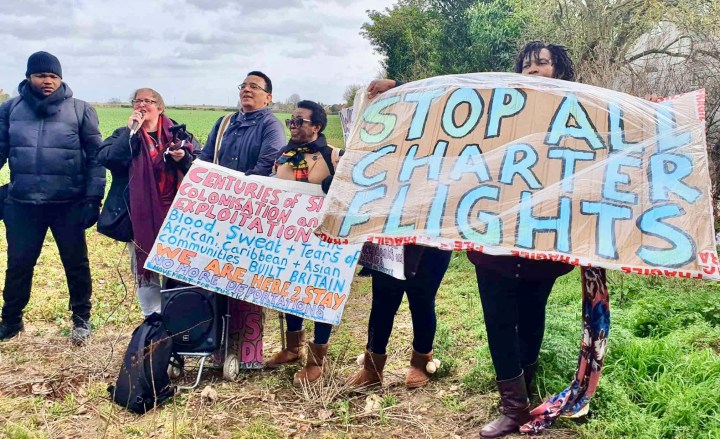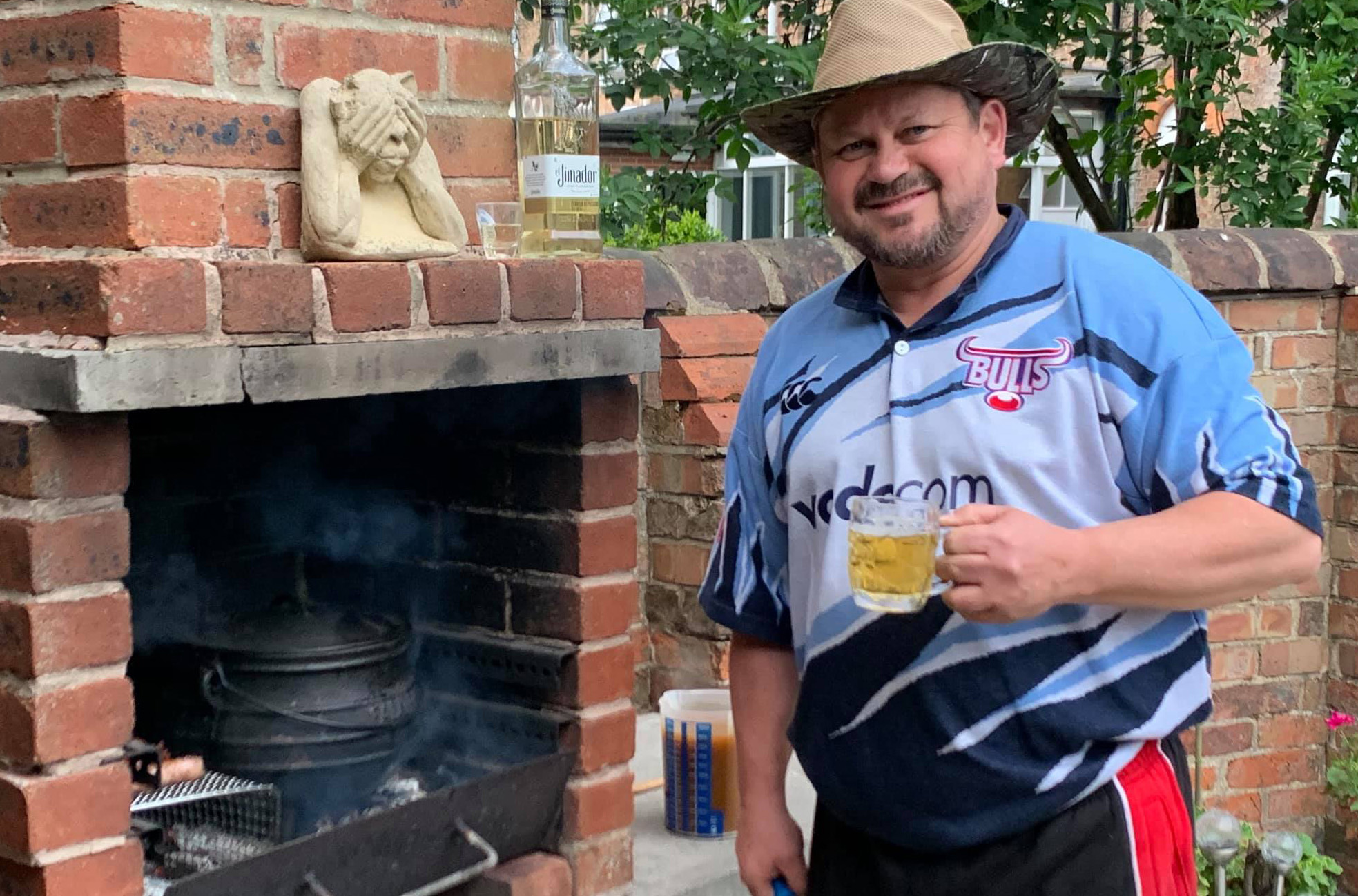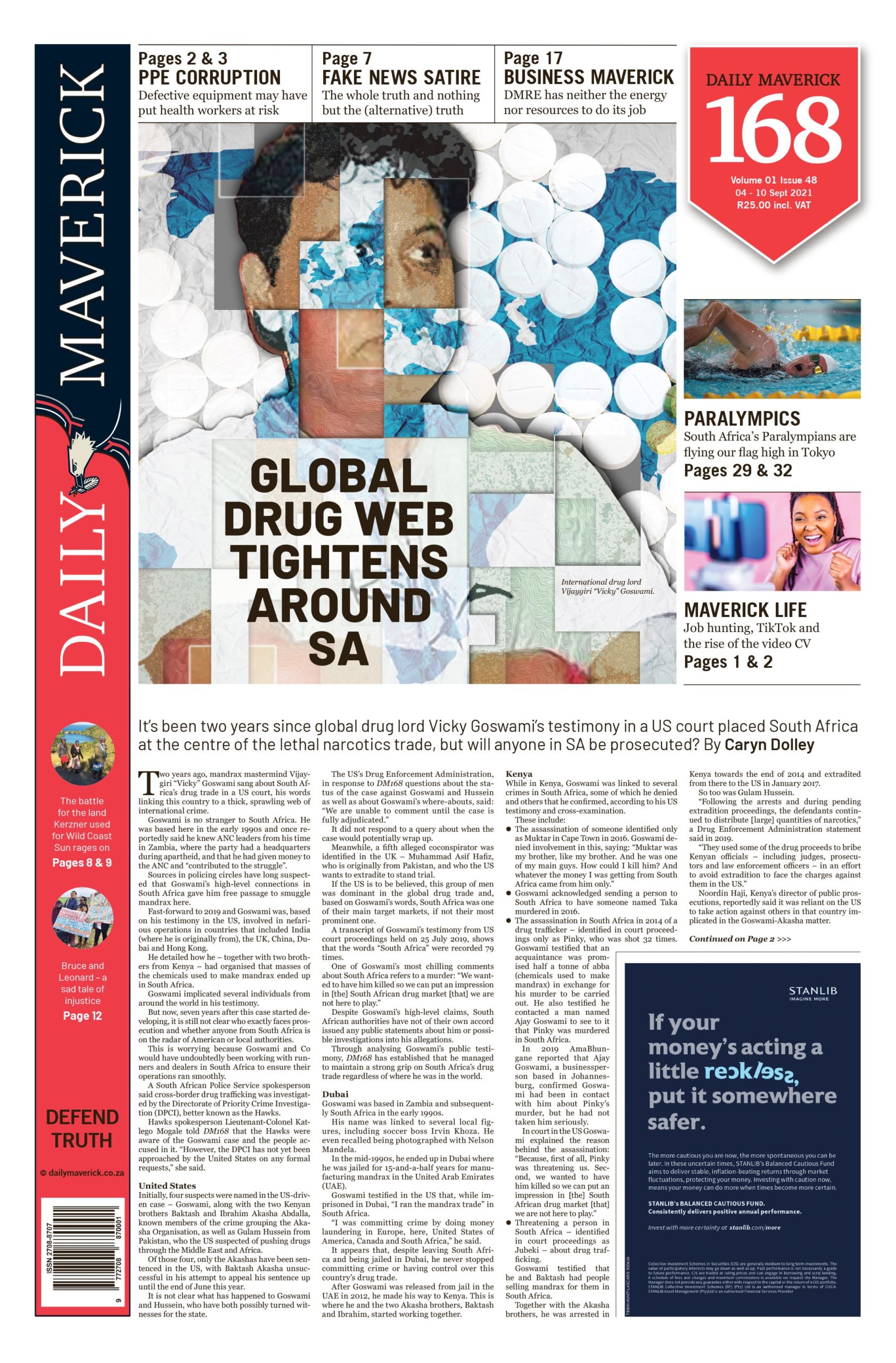DM168 DEEP DIVE
Bruce and Leonard – A sad African immigrant tale of injustice

One paid for his crime; the other fled from his crimes. One is in deportation quarantine; the other is in the pub.
First published in the Daily Maverick 168 weekly newspaper.
I want to tell a tale of two rugby-loving Africans who moved to Britain many years ago.
Let’s start with Bruce Mpofu. He came to the UK from Zimbabwe with his mother 20 years ago. She works for the NHS. Mpofu was nine years old at the time.
In 2010, he was involved in a robbery, for which he served 11 months in a young offenders’ institute. After his sentence he completed a plumbing course and, living in Bradford, joined the Wibsey Rugby Club where he became a valued player, popular with his teammates.
As a result of his criminal conviction, he had to attend regular meetings over the years for immigration purposes. On 8 July, he went to what he thought was a routine meeting, only to be told he was being detained and would be sent back to Zimbabwe – a foreign country, for all intents and purposes.
At 10pm on 25 August, Mpofu, now 29, was deported on a Home Office charter flight along with six other Zimbabweans. There were meant to be more but their lawyers had managed to lodge successful appeals.
The Independent reported last week that those who were deported on a separate charter flight last month are now homeless on the streets of Harare and Bulawayo.
“I’m terrified. I don’t know what’s going to happen,” Mpofu said shortly before being taken from Brook House detention centre to the airport.
“I’ve learnt from my mistake. If I’d been in and out of prison I might understand, but I’ve changed. It’s not fair for them to judge me on a mistake I made 10 years ago.”

Bruce Mpofu was deported on a Home Office charter flight, along with six other Zimbabweans. (Photo: Supplied)
Bruce’s best friend, John Priestly, said: “After his conviction, Bruce wanted to turn his life around, and that’s what he did. He approached Wibsey Rugby Club to meet better friends and he’s done a lot of volunteer work for the community. He hasn’t reoffended since. He deeply regrets what he did when he was younger. He’s loved by everyone.” Priestley described Mpofu as “a Yorkshire lad through and through”.
A friend, Katie Marie, left a message on Mpofu’s Facebook page the day he was deported: “Words don’t begin to explain how I feel right now, but one emotion is absolute anger!
“They’ve ruined so many lives on this one decision. How could they make such a decision not knowing the kindness that overflows in you?”
Bella Sankey, the director of Detention Action, said the “hallmarks” of mass deportation flights were “cruelty, incompetence and chaos”.
The British government says it’s doing the right thing for society. “Those being detained for return on this charter flight are all foreign national offenders who have been convicted of serious offences…” said Home Secretary Priti Patel.
Before being deported, the British government gave Mpofu £40 (R810) to help him start his new life. Speaking of serious offences, let’s move on to our second rugby-loving African. His name is Leonard Veenendaal. After having been the coach for many years, he is now the chairman and director of rugby at the Wisbech Rugby Club.

Leonard Veenendaal and his family are well established in the bucolic English countryside. (Photo: Supplied)
Unlike Mpofu, Veenendaal was an adult when he moved to Britain. Well, fled would probably be more accurate. He had been part of a group called Kontra 435 whose intention was to use terror tactics to disrupt Namibian independence. He was arrested and charged with murder in 1989 after a bomb attack on a United Nations office in the town of Outjo, in which a security guard died.
Veenendaal and his co-accused, Darryl Stopforth and German national Horst Klenz, escaped from police custody, killing a policeman in the process, and fled to South Africa where he was arrested months later for a bombing campaign against anti-apartheid targets. He was subsequently given amnesty for these attacks.
The Namibian government applied for Veenendaal’s extradition in 1990 and this was finally granted in 1996. Veenendaal was arrested and subsequently released on bail pending his application to appeal. He disappeared before it could be heard.
An appeal court judgment delivered in 1999 said: “When the matter was called in this Court, an attorney, Mr Mostert, appeared for Veenendaal. He confirmed newspaper reports that his client had stolen a car and fled the country.
“Mr Mostert confirmed that his client was not prepared to countenance the present governmental system any longer, that he had left the country, and that Interpol was looking for him. Mr Mostert quite properly conceded that his client was, under the circumstances, a fugitive from justice.”
I was a reporter on The Namibian newspaper at the time of the Outjo bombing and wondered over the years what had become of the man Afrikaner Weerstandsbeweging (AWB) leader Eugene Terre’Blanche once fondly described as “my little fanatic”.
Veenendaal was Terre’Blanche’s bodyguard as well as being a member of Orde Boerevolk. He also ran the Johannesburg branch of the AWB.
In 2008, I punched his name into Google – and there he was. Our Lenny. Working as a technical services manager for the Cambridgeshire County Council in the sleepy market town of Wisbech (pop. 31,000). Wisbech is known for its splendid Georgian architecture. I assume it’s less well known for harbouring white supremacist fugitives from justice.
In 2013, British newspaper the Daily Star tracked him down and wrote about his heinous past. They asked his employer for comment.
“A spokesman confirmed the council knew about the allegations against him but said: ‘A Criminal Records Bureau check was carried out and there was no reason not to employ him.’”
The paper wrote: “He also has a family website on which he says he, his wife Tracy and sons Darryl and De la Rey are ‘fiercely proud’ of their ‘rich historical and cultural background’.”
Veenendaal and his family are well established in the bucolic English countryside. He has called Wisbech home ever since fleeing South Africa. Today, he is chairman and director of rugby at the Wisbech RUFC and his wife, Tracy, is treasurer. He has braais on weekends. And if his Facebook page is anything to go by, he still misses the good old days – commemorating the apartheid flag, the Day of the Vow and so on.
***
And that’s the tale of two rugby-loving Africans who emigrated to Britain. One paid for his crime, the other didn’t. One is in a quarantine facility with fellow deportees, the other is in a pub with his mates.
The distance been Wibsey and Wisbech is only 200km but it has never been further apart than it is right now. DM168
This story first appeared in our weekly Daily Maverick 168 newspaper which is available for R25 at Pick n Pay, Exclusive Books and airport bookstores. For your nearest stockist, please click here.





















 Become an Insider
Become an Insider
Good old Britian. The best racists ever. Of course they will allow a white fugitive to stay. Their so called equality is only FB deep